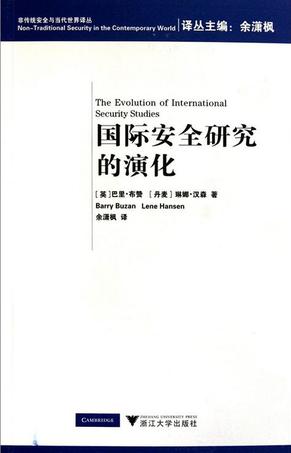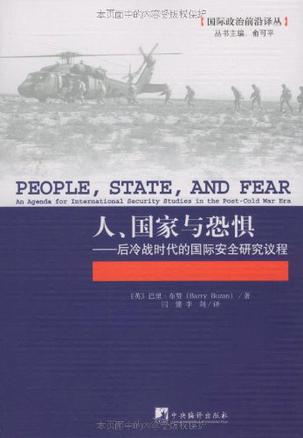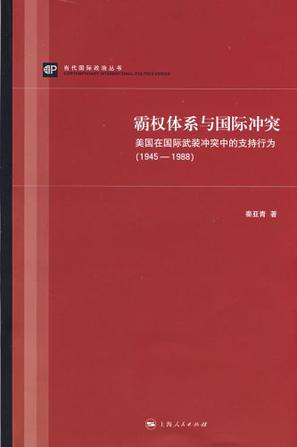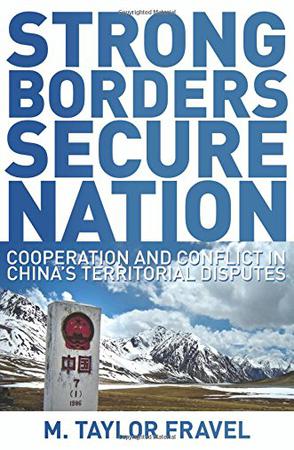-

国际安全研究的演化
《国际安全研究的演化》主要收录了后冷战时代的国际安全研究:传统主义者、元事件的消失:摆脱苏联的威胁、内部学术争论:国家中心主义和认识论、大国政治:一种对苏联的替代?、技术驱动力、区域安全与非西方事件等内容。 -

人、国家与恐惧
安全研究涉及对人类基本生存状况的思考,人类的安全状况则直接反映了整个人类文明的演进程度。因而,安全研究理应是人文哲学和社会科学的基础性研究之一。然而,长期以来,国际关系领域缺乏“元理论性”的安全研究,已有的安全研究仅仅局限于战略研究领域,研究范围和解释效力都十分有限。换言之,理论建构的缺乏已经成为安全研究进一步深入的瓶颈所在。巴里.布赞教授所著《人、国家与恐惧》一书正是致力于在安全理论建构方面有所开创。布赞教授的努力表明,安全理论的建构不仅有利于国际安全研究的深入进展,而且有可能为整个国际关系研究提供新的研究范式。 导论 第一章 个人安全与国家安全 作为一种社会问题的个人安全 个人安全与国家的两面性 作为一种威胁来源的国家 结语:个人安全与国家安全 第二章 国家安全与国家性质 作为一种安全对象的国家 国家观念 国家制度 国家的物质基础 结语:强国家与弱国家 第三章 国家不安全:威胁与脆弱性 威胁与脆弱性 不同领域中的威胁类型 威胁的识别 结语:威胁的模糊性 第四章 安全与国际政治体系 国际无政府状态的性质 国家的特征 体系结构在安全分析中的效用与限度 国际社会 结语:无政府状态与安全 第五章 地区安全 国家与体系之间:安全复合体 地区安全简史 作为结构的安全复合体:变化的进程与后果 结语:安全复合体和政策分析 第六章 经济安全 国际政治经济的本质 经济安全的概念 经济安全与国家 经济安全与国际体系 结语:展望一个成熟的无政府政治经济体系 第七章 防御困境 防御困境的界定 防御困境的历史进程 防御困境的持久性 …… 第八章 实力一安全困境 第九章 国家安全与国际安全:政策问题 第十章 国际安全研究总论 译者后记 -

Conventional Deterrence
-

霸权体系与国际冲突
《霸权体系与国际冲突:美国在国际武装冲突中的支持行为(1945-1988)》以科学的态度和精神,遵循严格的推理和演绎途径,在国际系统理论的框架下,探究冷战时期美国在国际武装冲突中立场选择的规律,得出许多很有启发性和挑战性的结论。中国国际问题学者首当其冲的任务,恐怕是要寻找和形成国际政治专门领域的研究语言与研究规模,并克服模棱两可、大而化之表述的障碍。因为主观臆测、缺乏实证基础的做法,曾经给我们的国际研究与重大问题的判断带来干扰与破坏。与此同时,构筑国际政治领域独特的概念与范畴体系,也是需学者们皓首穷经,冥思苦寻方能实现的境界。 -

Occupational Hazards
A 2009 Choice Magazine "Outstanding Academic Title" Few would contest that the U.S. occupation of Iraq is a clear example of just how fraught a military occupation can become. In Occupational Hazards, David M. Edelstein elucidates the occasional successes of military occupations and their more frequent failures. Edelstein has identified twenty-six cases since 1815 in which an outside power seized control of a territory where the occupying party had no long-term claim on sovereignty. In a book that has implications for present-day policy, he draws evidence from such historical cases as well as from four current occupations—Bosnia, Kosovo, Afghanistan, and Iraq—where the outcome is not yet known. Occupation is difficult, in Edelstein's view, because ambitious goals require considerable time and resources, yet both the occupied population and the occupying power want occupation to end quickly and inexpensively; in drawn-out occupations, impatience grows and resources dwindle. This combination sabotages the occupying power's ability to accomplish two tasks: convince an occupied population to suppress its nationalist desires and sustain its own commitment to the occupation. Structural conditions and strategic choices play crucial roles in the success or failure of an occupation. In describing those factors, Edelstein prescribes a course of action for the future. -

Strong Borders, Secure Nation
As China emerges as an international economic and military power, the world waits to see how the nation will assert itself globally. Yet, as M. Taylor Fravel shows in Strong Borders, Secure Nation, concerns that China might be prone to violent conflict over territory are overstated. The first comprehensive study of China's territorial disputes, Strong Borders, Secure Nation contends that China over the past sixty years has been more likely to compromise in these conflicts with its Asian neighbors and less likely to use force than many scholars or analysts might expect. By developing theories of cooperation and escalation in territorial disputes, Fravel explains China's willingness to either compromise or use force. When faced with internal threats to regime security, especially ethnic rebellion, China has been willing to offer concessions in exchange for assistance that strengthens the state's control over its territory and people. By contrast, China has used force to halt or reverse decline in its bargaining power in disputes with its militarily most powerful neighbors or in disputes where it has controlled none of the land being contested. Drawing on a rich array of previously unexamined Chinese language sources, Strong Borders, Secure Nation offers a compelling account of China's foreign policy on one of the most volatile issues in international relations.